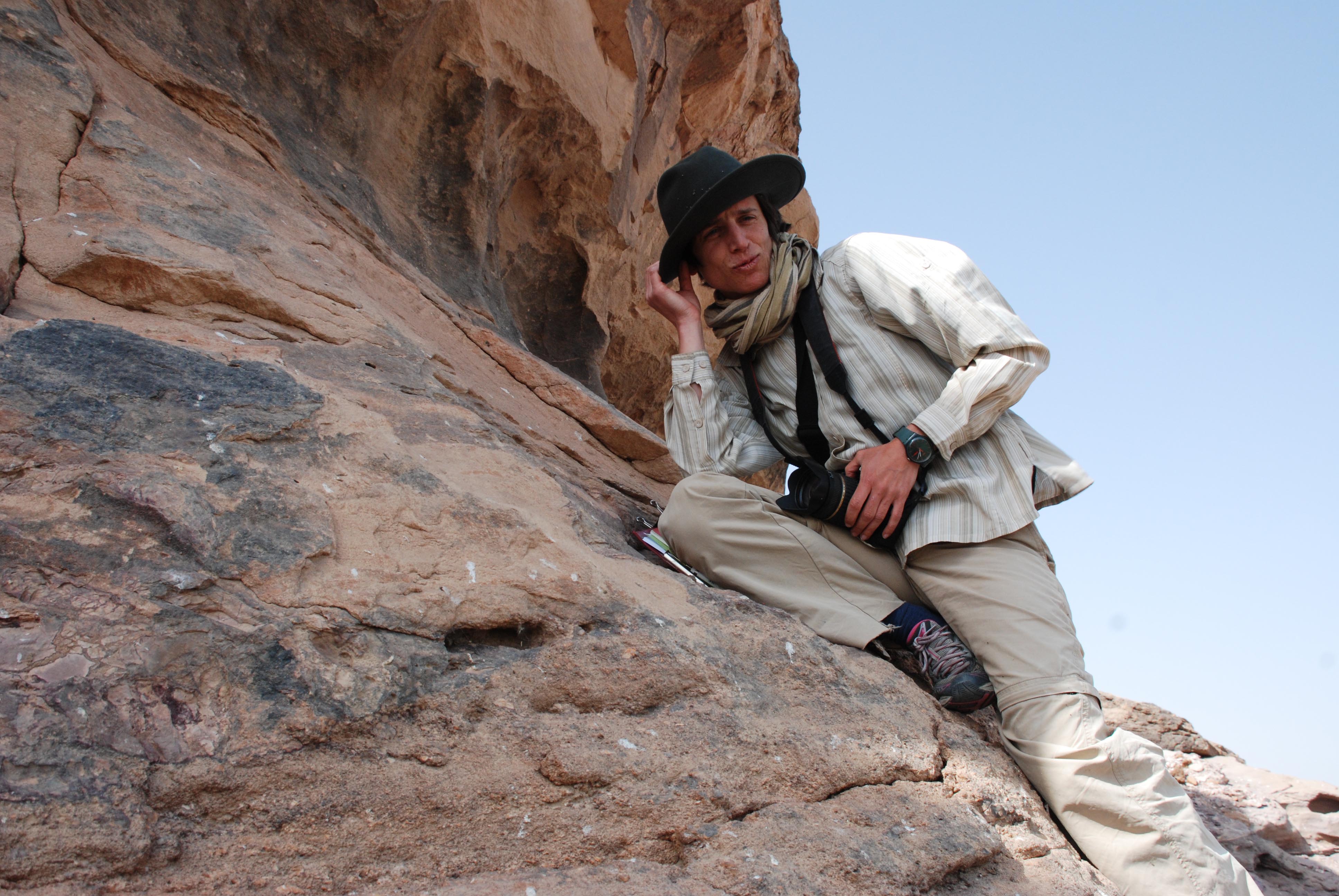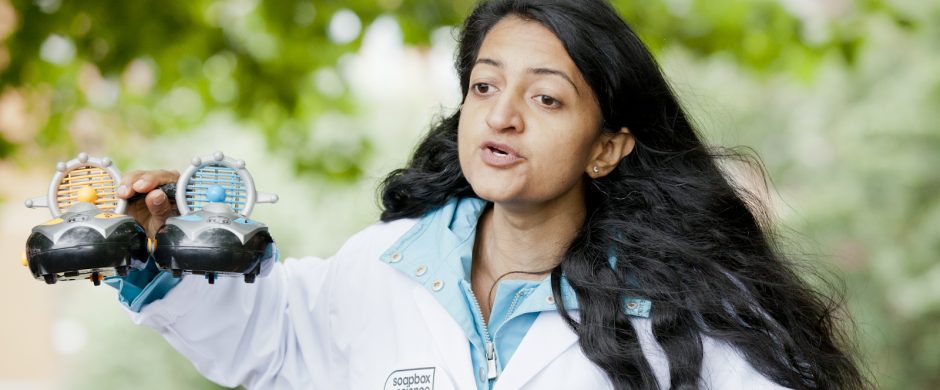 Prof. Dr. Julia Budka (@jubudka), LMU Munich, is taking part in Soapbox Science Munich 2019, with the talk:“Forget Indiana Jones! Why being an archaeologist is nevertheless a dream job; Vergesst Indiana Jones! Warum Archäologin dennoch ein Traumberuf ist“
Prof. Dr. Julia Budka (@jubudka), LMU Munich, is taking part in Soapbox Science Munich 2019, with the talk:“Forget Indiana Jones! Why being an archaeologist is nevertheless a dream job; Vergesst Indiana Jones! Warum Archäologin dennoch ein Traumberuf ist“
Soapbox Science Munich: Did you choose a scientific career or did the scientific career choose you?
Prof. Dr. Julia Budka: I definitely made the choice – I knew already quite early that I wanted to be an archaeologist, at the age of 11. At first, I wanted to know everything about the Romans because I loved learning Latin at school, but then I discovered that the Ancient Egyptians are more interesting – and much cooler!
SSM: What was the key event that brought you to the place where you are now?
JB: These were two key events, almost simultaneously – both in the summer of 2012: the interview for the FWF START prize in Vienna and the interview for the ERC Starting Grant in Brussels. As both turned out fine, I knew I could stay in science (otherwise I would have been unemployed…) and follow my ground-breaking project – with very nice funding, a working group for 5 respectively 6 years. And these successful grants in turn pushed my career and were responsible that I was offered the professorship here in Munich. I will always remember these few minutes in Vienna and Brussels which were so crucial and passed by so quickly.
SSM: What is the most exciting aspect of your research?
JB: In Egyptian archaeology we have the great chance to get very close to past people, to specific individuals. We find textual records and can trace explicit persons, their careers, family relationships and if we are lucky (and find their tombs and skeletons) we can also reconstruct their health status, their age, their diet etc. For example, when I was just 22, a stone block was discovered during our excavations made by a person with the name Nehy at a Nile island in Egypt. He was a high official and lived in the second millennium BCE. I could publish this block for my master degree and did much research on this person and his life and monuments. 15 years later, I had the next encounter with the very same person: within my ERC project I excavated structures on another Nile island, this one located in modern Sudan – and we found objects with the name of my old friend Nehy. For me this is what my field is all about: working out details, understanding processes and putting together complex jigsaw puzzles. This may take years, but is extremely exciting and allows us to reconstruct parts of our past.
SSM: What challenges do you encounter in science?
JB: There are of course multiple challenges in science – one could talk about all the structural problems at universities, the limited number of positions for talented postdocs, the limited funding, the still existing gender bias at the highest level, the leaky pipeline for women etc.
For me, one of the biggest challenges is related to the current funding scheme: as archaeologists we are conducting primarily fundamental research; we are not doing applied science. Most funding agencies require that you know already when submitting your proposal what you will be doing 3 years later, what results and outcome to expect etc. But this actually slows science down and is ‘mainstreaming’ research – we need more flexibility, more freedom to try things, more support for things which seem to be boring. I am getting tired of always having to sell things as absolutely exciting, mind-blowing and ground-breaking interesting because otherwise it is not approved by the reviewers. Besides real innovative research, I would also like to have more time and more money to do basic work – because without these basic things, we will not be able to answer the real questions and get closer to the big picture.
SSM: What motivates you to give a talk in Soapbox science?
JB: I really like to engage with the public and to talk about my work – it’s not just that it is our responsibility being employed and funded by tax money, but it is also highly rewarding. Feedback from non-scientists is always really interesting and often surprising. Coming out of the closet – out of the science bubble into ‘real life’ – can be very inspiring. What really intrigues me about the Soapbox concept is that it is not an announced science communication event where one reaches an interested audience, but that one must engage with accidental by-passers – I expect a large set of diverse reactions and interactions and it definitely sounds like much fun.
SSM: Do you have a few words to inspire other female scientists?
JB: As scientists we have the huge bonus to other jobs that we normally love what we do. Always remember that this is a gift – and as long as you love doing what you do, never give up, even if grant proposals fail, if job positions do not work out and the data you expected and counted on are not there. Persistence normally pays off, and females are survivors and are getting more and more visible in science.
